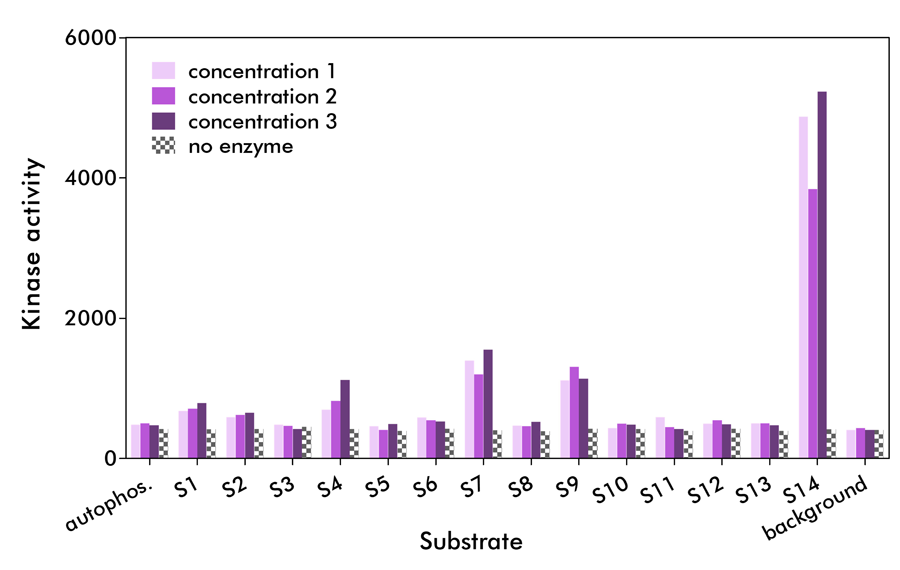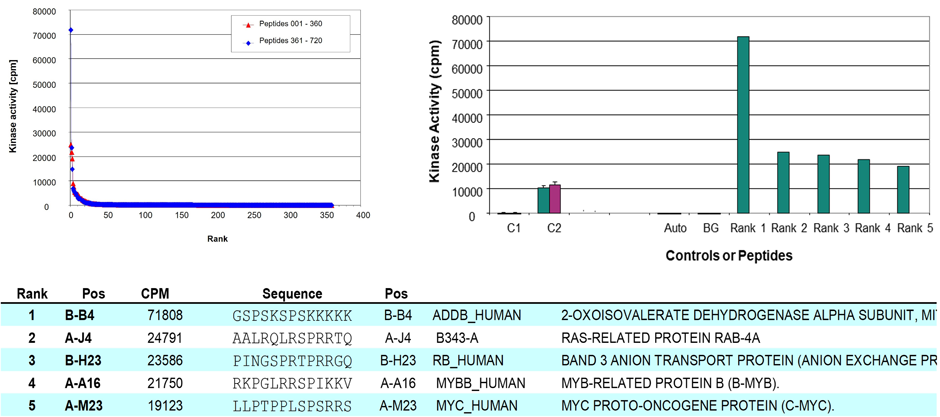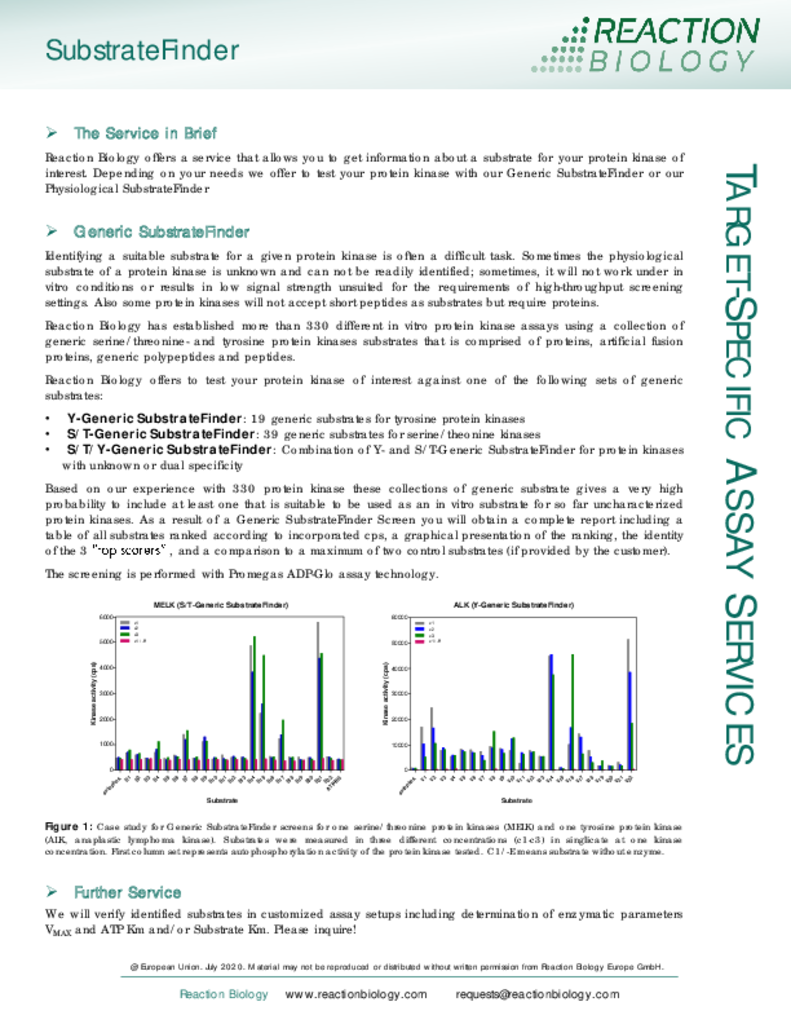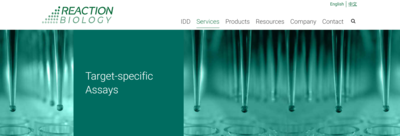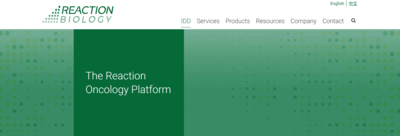Kinase SubstrateFinder Assay Service
The Kinase SubstrateFinder is a biochemical kinase assay that can be used for the identification of suitable substrates for a specific kinase of interest. Identification of kinase substrates is a necessary step for kinase assay development and is useful for the identification of downstream substrates to explore a pathway.
The Kinase SubstrateFinder comprises 5 variants of standardized service packages for the identification of proteins or peptides which can serve as a substrate in biochemical activity assays for a certain protein kinase provided by the customer. The 3 generic Kinase SubstrateFinder variants comprise different panels of proteins used as kinase substrate at Reaction Biology, whereas the physiological SubstrateFinder variants include biotinylated peptide libraries from JPT Peptide Technologies.
- Testing of generic substrates with ADP-Glo (Promega) assay format
- Testing of physiologic substrates with radiometric 33PanQinase™ assay

